Daniel DeLaurentis
Enabling Integration and Interaction for Decentralized Artificial Intelligence in Airline Disruption Management
Apr 07, 2021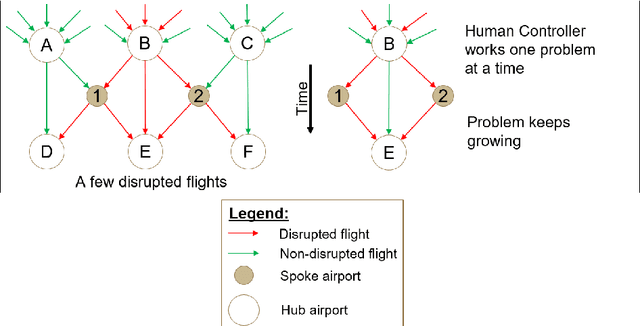



Abstract:Airline disruption management traditionally seeks to address three problem dimensions: aircraft scheduling, crew scheduling, and passenger scheduling, in that order. However, current efforts have, at most, only addressed the first two problem dimensions concurrently and do not account for the propagative effects that uncertain scheduling outcomes in one dimension can have on another dimension. In addition, existing approaches for airline disruption management include human specialists who decide on necessary corrective actions for airline schedule disruptions on the day of operation. However, human specialists are limited in their ability to process copious amounts of information imperative for making robust decisions that simultaneously address all problem dimensions during disruption management. Therefore, there is a need to augment the decision-making capabilities of a human specialist with quantitative and qualitative tools that can rationalize complex interactions amongst all dimensions in airline disruption management, and provide objective insights to the specialists in the airline operations control center. To that effect, we provide a discussion and demonstration of an agnostic and systematic paradigm for enabling expeditious simultaneously-integrated recovery of all problem dimensions during airline disruption management, through an intelligent multi-agent system that employs principles from artificial intelligence and distributed ledger technology.
Uncertainty Quantification and Propagation for Airline Disruption Management
Feb 09, 2021
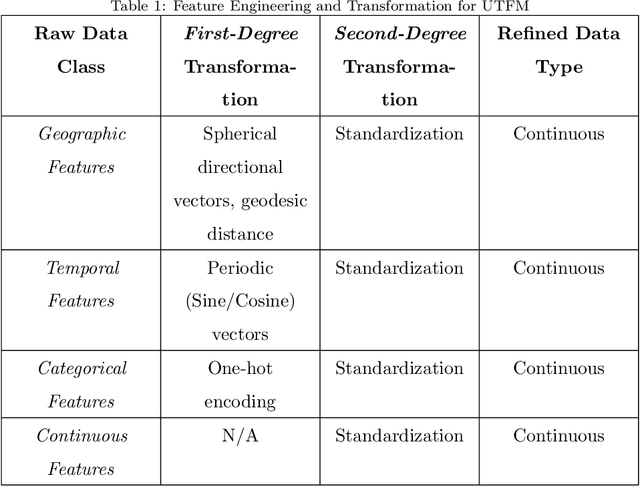

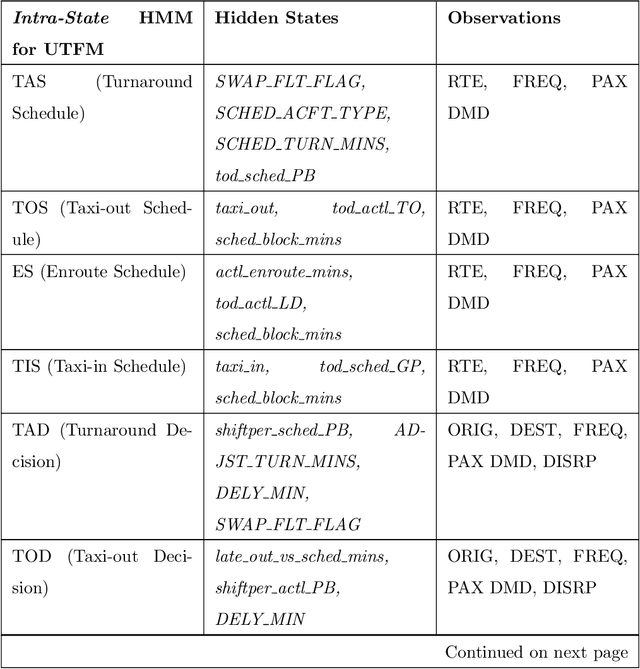
Abstract:Disruption management during the airline scheduling process can be compartmentalized into proactive and reactive processes depending upon the time of schedule execution. The state of the art for decision-making in airline disruption management involves a heuristic human-centric approach that does not categorically study uncertainty in proactive and reactive processes for managing airline schedule disruptions. Hence, this paper introduces an uncertainty transfer function model (UTFM) framework that characterizes uncertainty for proactive airline disruption management before schedule execution, reactive airline disruption management during schedule execution, and proactive airline disruption management after schedule execution to enable the construction of quantitative tools that can allow an intelligent agent to rationalize complex interactions and procedures for robust airline disruption management. Specifically, we use historical scheduling and operations data from a major U.S. airline to facilitate the development and assessment of the UTFM, defined by hidden Markov models (a special class of probabilistic graphical models) that can efficiently perform pattern learning and inference on portions of large data sets.
Exploratory Data Analysis for Airline Disruption Management
Feb 07, 2021
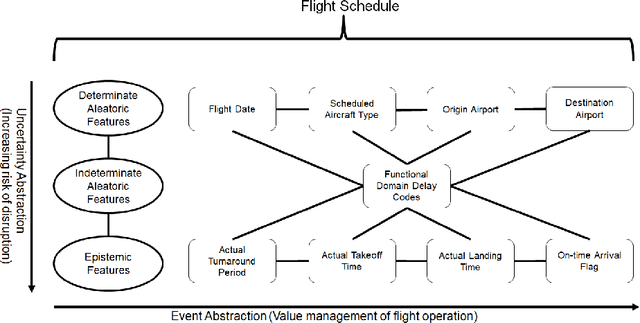
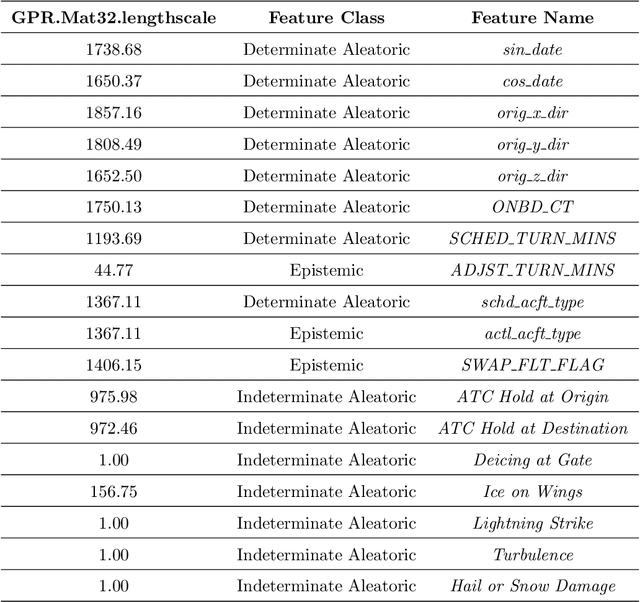

Abstract:Reliable platforms for data collation during airline schedule operations have significantly increased the quality and quantity of available information for effectively managing airline schedule disruptions. To that effect, this paper applies macroscopic and microscopic techniques by way of basic statistics and machine learning, respectively, to analyze historical scheduling and operations data from a major airline in the United States. Macroscopic results reveal that majority of irregular operations in airline schedule that occurred over a one-year period stemmed from disruptions due to flight delays, while microscopic results validate different modeling assumptions about key drivers for airline disruption management like turnaround as a Gaussian process.
 Add to Chrome
Add to Chrome Add to Firefox
Add to Firefox Add to Edge
Add to Edge